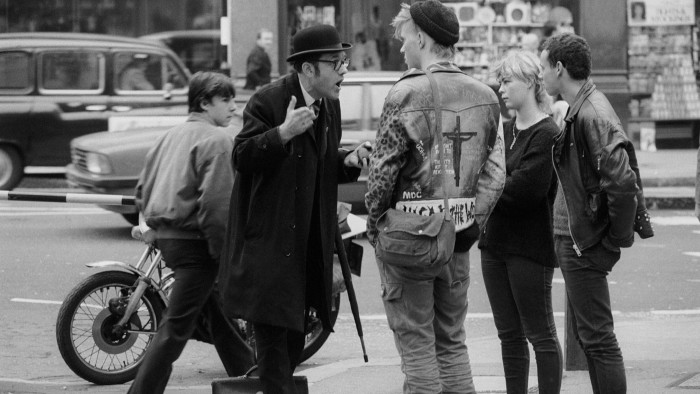Contrarians are valuable, even when they’re wrong


Roula Khalaf, Editor of the FT, selects her favourite stories in this weekly newsletter.
A colleague recently tweeted that “Just because you have thoughts everyone disagrees with doesn’t make you valuable as a contrarian. You could also just be wrong.”
Being something of a contrarian myself, I felt inclined to differ. It seems to me that even a contrarian who turns out “wrong” is valuable, insofar as it encourages those with opposing views to scrutinise their own positions. Furthermore, who gets to establish who is “wrong” and who isn’t? When does that become conclusive? And, in the meantime, isn’t the contrarian position as valuable as the rest?
During the pandemic, “Covid contrarians” (or “lockdown sceptics”, although their scepticism extends beyond confinement) have become many people’s favourite villains. Their repeated claims that lockdowns and masks don’t work, and that the virus isn’t as bad as everyone else says, have increasingly been viewed as wrong and, lately, downright dangerous.
I had some sympathy with their arguments, at first. Yet these sceptics have vexed me lately. They seem to have become ever more selective about their “facts”, and remained pigheaded even when new evidence — and new mutant strains — have emerged. Frankly, they are giving contrarianism a bad name too.
I don’t believe, as some seem to, that these sceptics shouldn’t be allowed a platform. Then again, I’m not sure they are true contrarians. The Cambridge Dictionary definition is someone “who likes to disagree with other people and express opinions that are unpopular”. Yet the opinions of Covid sceptics have become popular — not with the majority perhaps, but among what has effectively become an anti-consensus consensus.
Unlike in the investment world, where contrarianism is valued in its own right and often compensated with financial gain, the rewards from challenging the consensus in public debate are rarely obvious. That is one reason why Ali Miraj, a banker and former Tory councillor, founded the Contrarian Prize in 2012.
“People who actually change . . . history are often dismissed as crackpots and fruitcakes when they come out with their initial ideas,” Mr Miraj says. “In many cases they prove to be prescient . . . and then we end up playing catch-up . . . 20 years later, when their views become mainstream.”
Even if their views don’t end up becoming mainstream, or if they turn out to be wrong, contrarians still contribute. They widen the scope of debate. They can also embolden the consensus view: if you’re presented with a set of opposing arguments that don’t stack up, you tend to feel more confident in your position, not less.
Of course, there are limits to the extent that taking a contrary position adds value. You don’t want to end up like the Monty Python character in the “Argument Clinic” skit, who disagrees with everything said by the other character. The latter, who actually seeks real argument, complains that: “Argument is an intellectual process. Contradiction is just the automatic gainsaying of any statement the other person makes.” To which the first character inevitably replies: “No it isn’t”.
We might think about contrarianism in a similar way. If it is simply a knee-jerk impulse to take the opposite side of any given proposition, the dimensions of the debate become static rather than generative.
“If you put a minus sign in front of everything in order to take the opposite position, you are in fact accepting the spectrum in which you have been handed the original proposition,” says Eric Weinstein, a mathematician and managing director at Thiel Capital. He has been called a “contrarian nit-picker” — apparently a slur although I, as a contrarian pedant, would wear it with pride.
At a time when free speech is under attack across the world and groupthink is on the rise, those who question and poke at assumptions behind the status quo are more important than ever. We should recognise the value of such challengers, not punish them, even if they turn out to be wrong. In the end, it’s not about being right. It’s about making sure we have the conditions — such as a willingness to scrutinise our own positions and to seek out those who might disagree — that are needed for democratic society to function.
The new nationwide lockdown rules in England
The main restriction is a firm stay-at-home message
People are only allowed to leave their home to go to work if they cannot reasonably do so from home, to shop for essential food, medicines and other necessities and to exercise with their household or one other person — once a day and locally
The most clinically vulnerable have been asked to shield
All colleges and primary and secondary schools are closed until a review at half-term in mid-February. Vulnerable children and children of critical workers are still able to attend while nursery provision is available
University students have to study from home until at least mid-February
Hospitality and non-essential retail are closed. Takeaway services are available but not for the sale of alcohol
Entertainment venues and animal attractions such as zoos are closed. Playgrounds are open
Places of worship are open but one may attend only with one’s household
Indoor and outdoor sports facilities, including courts, gyms, golf courses, swimming pools and riding arenas, are closed. Elite sport, including the English Premier League, continues
Overseas travel is allowed for “essential” business only
Full details are available on the government’s official website.
Comments